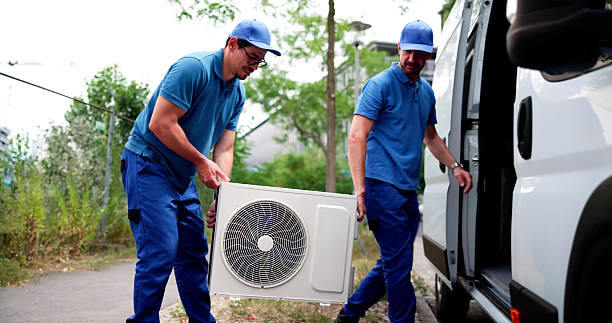As a certified personal trainer and nutrition specialist with 15 years of experience helping clients optimize their health and appearance, I’ve closely followed hair regrowth clinical trials with particular interest in how lifestyle factors influence treatment outcomes. While genetics play a primary role in hair loss, I’ve observed that nutrition, exercise, stress management, and overall wellness significantly impact both natural hair health and the success of clinical treatments.
The current landscape of hair regrowth clinical trials represents an exciting convergence of medical technology, nutritional science, and lifestyle medicine. What fascinates me most is how these studies are beginning to recognize that sustainable hair regrowth often requires a comprehensive approach that addresses nutrition, circulation, hormonal balance, and stress management alongside medical interventions.
Understanding the Science: How Nutrition Affects Hair Growth
Current clinical trials are providing compelling evidence for what I’ve observed in my practice: proper nutrition is fundamental to hair regrowth success. Studies are examining how specific nutrients – including biotin, iron, zinc, and protein – influence hair follicle function and treatment response.
The NUTRITION-HAIR trial is investigating how optimized nutrition protocols can enhance the effectiveness of topical and oral hair loss treatments. From my experience with body composition and metabolic health, it makes perfect sense that hair follicles, like all body tissues, require optimal nutrition to function properly and respond to therapeutic interventions.
Exercise and Circulation: The Missing Link
One area where my fitness background provides unique insights is understanding how exercise affects scalp circulation and hair growth. Clinical trials are beginning to investigate how cardiovascular exercise, scalp massage, and specific movement patterns can improve blood flow to hair follicles and enhance treatment outcomes.
The CIRCULATION-GROWTH study is examining how different exercise protocols affect scalp blood flow and hair regrowth rates in participants using various treatments. Preliminary results suggest that clients who maintain consistent cardiovascular exercise routines show better hair regrowth outcomes, likely due to improved circulation and reduced inflammation.
Stress Management and Hormonal Balance
From my experience coaching clients through body transformation challenges, I understand how stress affects every aspect of health, including hair growth. Clinical trials are investigating how stress reduction techniques, sleep optimization, and cortisol management can support hair regrowth treatments.
High cortisol levels can interfere with hair growth cycles and reduce the effectiveness of hair loss treatments. Studies are showing that clients who incorporate stress management techniques – including regular exercise, meditation, and adequate sleep – have better treatment outcomes and more sustainable results.
Protein and Amino Acid Optimization
Hair is primarily composed of protein, and clinical trials are investigating how specific amino acid supplementation can support hair regrowth. Studies are examining targeted protein protocols that provide the building blocks necessary for healthy hair formation.
From my nutrition coaching perspective, I’ve seen how inadequate protein intake can limit hair growth potential, even when clients are using effective treatments. The research is confirming that optimal protein intake – typically 1.2-1.6 grams per kilogram of body weight – is essential for maximizing hair regrowth treatment success.
Combination Therapy Approaches
The most promising clinical trials I’m following investigate combination approaches that integrate medical treatments with lifestyle optimization. These studies recognize that sustainable hair regrowth often requires addressing multiple factors simultaneously.
The INTEGRATED-REGROWTH trial is examining how combining FDA-approved treatments with structured nutrition protocols, exercise programs, and stress management techniques can improve both short-term results and long-term maintenance. This holistic approach aligns perfectly with my philosophy of comprehensive health optimization.
Anti-Inflammatory Nutrition Protocols
Clinical trials are revealing how chronic inflammation can interfere with hair growth cycles and reduce treatment effectiveness. Studies are investigating anti-inflammatory nutrition protocols that can support hair regrowth by reducing systemic inflammation.
This research aligns with my observations about how anti-inflammatory eating patterns benefit overall health and appearance. Foods rich in omega-3 fatty acids, antioxidants, and polyphenols appear to create an internal environment more conducive to hair regrowth and treatment success.
Micronutrient Deficiency Correction
Many clinical trials are investigating how correcting specific micronutrient deficiencies can enhance hair regrowth treatments. Iron deficiency, vitamin D insufficiency, and B-vitamin deficiencies are all being studied for their impact on hair growth and treatment response.
From my experience with comprehensive health optimization, addressing nutritional deficiencies often produces improvements in multiple areas simultaneously, including hair health. The clinical research is providing evidence-based protocols for nutrient optimization that I can integrate into my coaching practice.
Scalp Health Optimization
Current trials are investigating how scalp health affects hair regrowth treatment success. Studies are examining how proper cleansing, exfoliation, and moisturizing protocols can create optimal conditions for hair follicle function and treatment absorption.
This research connects to my understanding of how overall skin health reflects internal wellness. Clients who maintain good scalp hygiene and use appropriate products often see better results from hair regrowth treatments, likely due to improved follicle health and treatment penetration.
Sleep Quality and Hair Growth
Clinical trials are revealing connections between sleep quality and hair regrowth success. Studies show that poor sleep can elevate cortisol levels, reduce growth hormone production, and interfere with hair growth cycles.
From my experience with clients pursuing body composition goals, I know that sleep optimization is crucial for hormonal balance and recovery. The hair regrowth research is confirming that clients who prioritize sleep quality have better treatment outcomes and more sustainable results.
Individualized Protocol Development
The most sophisticated clinical trials are investigating personalized approaches that tailor nutrition and lifestyle recommendations to individual genetic profiles, hormonal patterns, and lifestyle factors. This precision medicine approach could dramatically improve treatment success rates.
From my coaching experience, I know that individualized approaches are always more effective than one-size-fits-all protocols. The research is providing frameworks for customizing hair regrowth programs based on individual needs and circumstances.
Long-Term Maintenance Strategies
Clinical trials are investigating how lifestyle factors influence long-term hair regrowth maintenance. Studies show that clients who maintain consistent nutrition, exercise, and stress management practices retain their results better than those who discontinue lifestyle optimization after initial treatment success.
This aligns with my experience in body transformation coaching – sustainable results require sustainable lifestyle practices. The hair regrowth research is confirming that long-term success requires ongoing attention to the factors that support healthy hair growth.
Cost-Effectiveness and Lifestyle Integration
From a practical standpoint, clinical trials are examining how lifestyle-integrated approaches to hair regrowth can improve cost-effectiveness by reducing the need for expensive ongoing treatments. Studies suggest that clients who optimize their nutrition and lifestyle may require less intensive medical interventions.
This research supports my philosophy that investing in comprehensive health optimization often provides better long-term value than focusing solely on symptom management. Healthy lifestyle practices that support hair growth also benefit overall health and appearance.
Current hair regrowth clinical trials are revealing that the most effective approaches integrate medical treatments with comprehensive lifestyle optimization. As a fitness and nutrition professional, I’m excited to see research confirming what I’ve observed in practice: that nutrition, exercise, stress management, and overall wellness play crucial roles in hair regrowth success. For clients considering hair loss treatments, focusing on lifestyle factors can enhance treatment effectiveness while providing broader health benefits that support long-term success.








